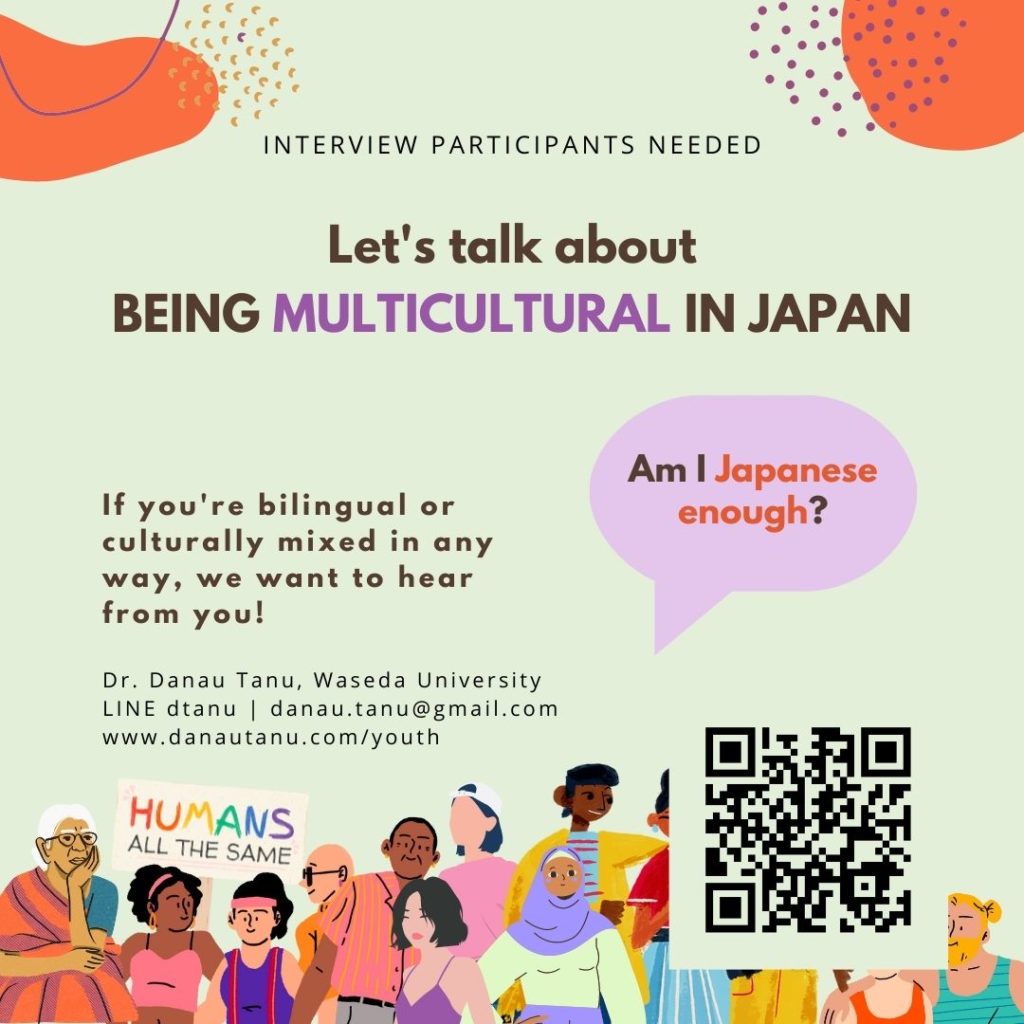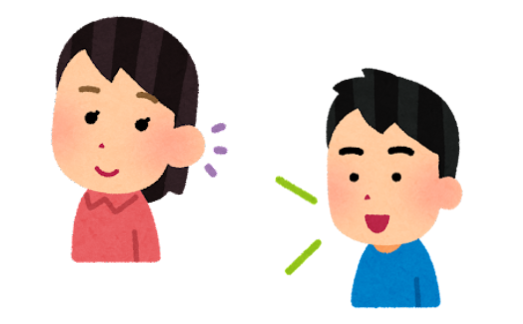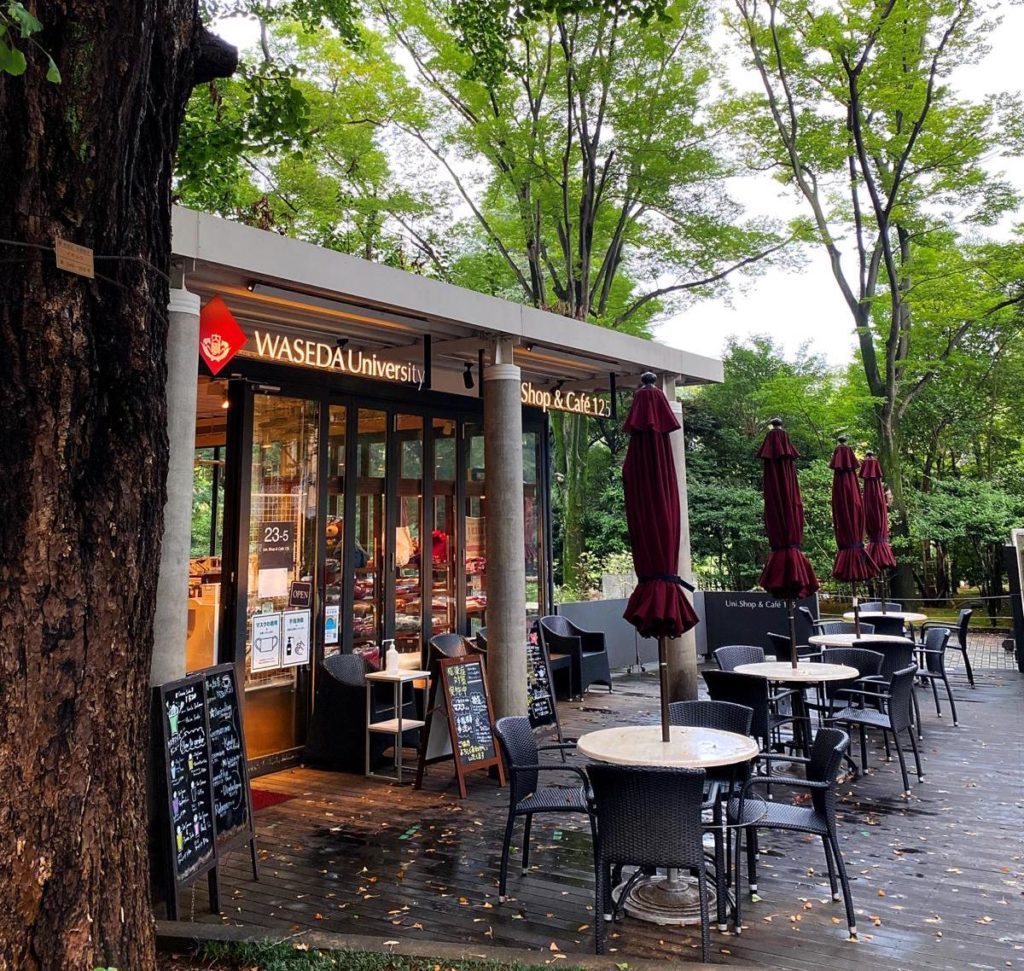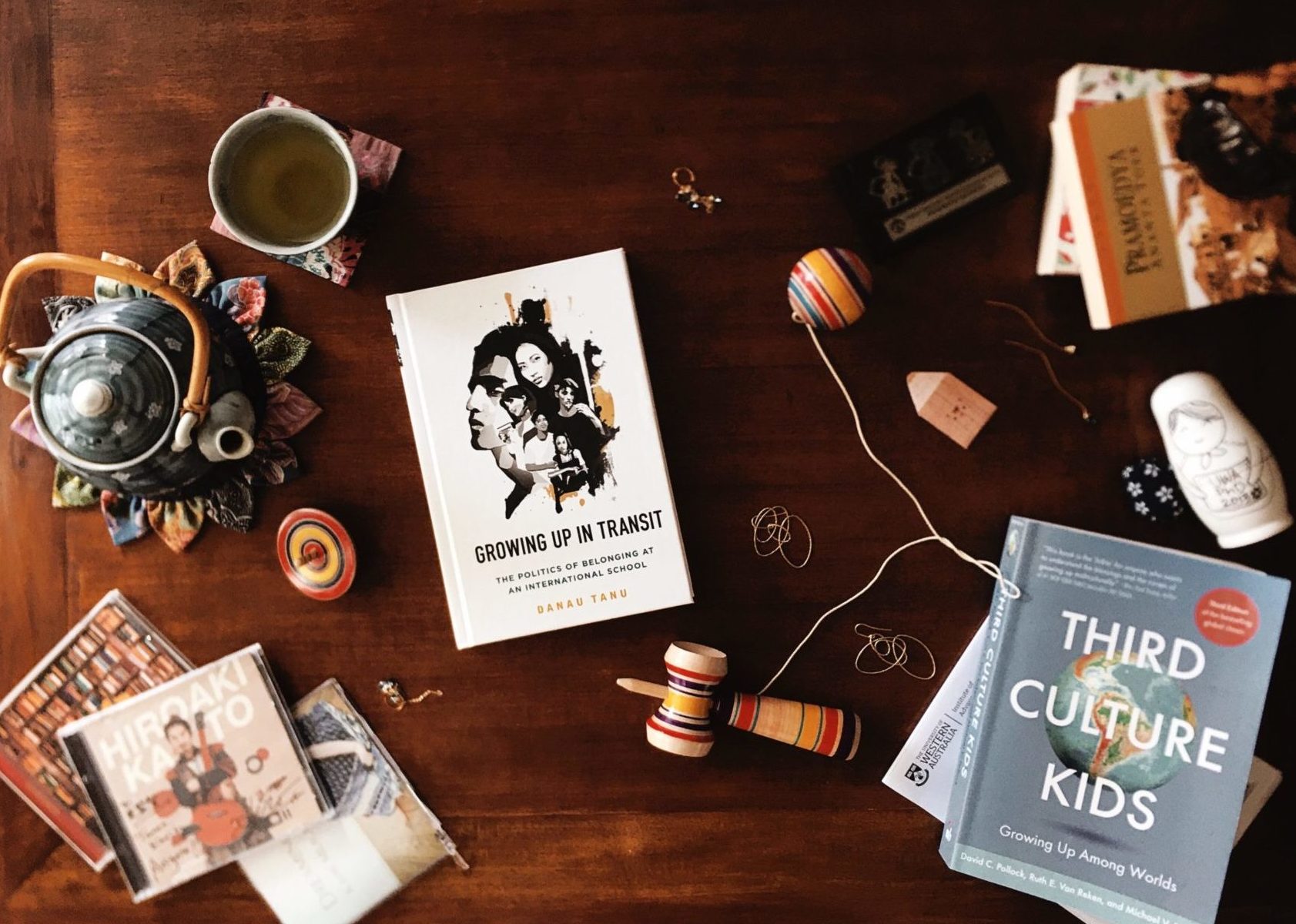Hello. Thank you for visiting this page.
My name is Danau Tanu. I am a Visiting Research Fellow at Waseda University.
I would like to interview young people with a multicultural background. Please read below to find out more. (Also available in 日本語 or Bahasa Indonesia.)
Topic: What are you researching?
Japan’s population is becoming more diverse but there is very little research on the experiences of children and young people growing up with a multicultural background.
This research focuses on how multicultural people in Japan are impacted by one or more of the following factors:
- mobility/moving
- schooling and education
- media (including social media)
- social relations (family, friends, community, etc.)

Participants: Who are you researching?
In this research, I am looking for children and adults (no age limit) with a multicultural background and a Japan connection. If you have received some Japanese schooling (in Japan or overseas) and identify with one or more of the following, please let me know:
- spent some of their childhood outside of Japan (3 months or more before age 18),
- have one or more parent(s) who were born overseas,
- have one or more parent(s) who are ethnic minorities in Japan,
- grew up bilingual/multilingual as a result of mobility, schooling, media, friends, family, etc.
- other*
(*If you feel you are multicultural but don’t fit in the above categories, please let me know, I’d love to hear from you!)
Method: How do you collect data?
As an anthropologist, I will collect qualitative data through interviews (main method) and ‘participant observation’ (optional).
Interviews
I will interview participants as follows:
- Duration
1.5 ~ 2 hours (depends on your availability) - Time & place
We can meet at a time and place that is convenient for you. (In person interviews are preferred but online interviews are possible too.) - Questions
I am interested in the participant’s childhood and current experiences relating to the research topic. The interview is informal, so I will guide the general topic of conversation but there are no formal questions. Participants can share as much or as little as they want. - Recording & permission
Interviews will be audio recorded with the your permission. If you are aged 17 years old or younger, I will also ask for permission from your parent or guardian. - Privacy & anonymity
I will later transcribe and analyse the interviews and quote some of it in publications. Unless you specifically request that I use your real name, I will always use pseudonyms to protect your identity, anonymity and privacy. - Covid measures
The researcher has received 3 covid vaccination shots and will abide by the regular measures such as wearing a mask when not eating or drinking and maintaining social distance.

Participants often tell me that they enjoy being interviewed because I try to make sure they feel comfortable sharing their stories. This means that if you don’t like a question, you don’t have to answer it. Also, you can say ‘yes’ to an interview and then change your mind later during or after the interview. For example, if you change your mind after the interview, you can ask me to delete the recording. You don’t even have to explain why you changed your mind.
Participant observation (Optional)
Anthropologists also sometimes use a method called ‘participant observation’. This means we hang out with people ‘in real life’, such as at work or when they spend time with friends and family. This helps us gain more in-depth understanding of their experiences. But I will only do this with your permission of course!
Contact: How do I participate?
If you would like to participate in the research or find out more about the research, please fill in the Contact Form or feel free to contact me directly.
Output: What will you do with the data?
After transcribing and analyzing the data, I will publish the findings in academic journals (e.g. journals in anthropology, sociology, migration studies or education) to contribute to the scholarship on multicultural identities and education.
I will also publish the findings as newspaper opinion pieces or magazine articles (e.g. education-related magazines) to reach a broader audience and contribute to the public discussions on relevant issues.
I may also publish my findings as a book (for the same reasons) depending on the amount of data and subsequent funding opportunities.

Affiliation: Who are you?
Dr. Danau Tanu is a Visiting Research Fellow at the Waseda University Institute of Asia-Pacific Migration (WIAPS) in Tokyo, Japan. She is on a long-term research fellowship funded by The Japan Foundation. You can also learn more about her past research and background.
Contact
If you have any questions or would like to find out more about the research, please contact me via:
- E-mail (danau.tanu [at] gmail.com,
- LINE (ID: dtanu), or
- Other social media
Thank you!


3 Replies to “Japan’s Multicultural Youth”
Comments are closed.